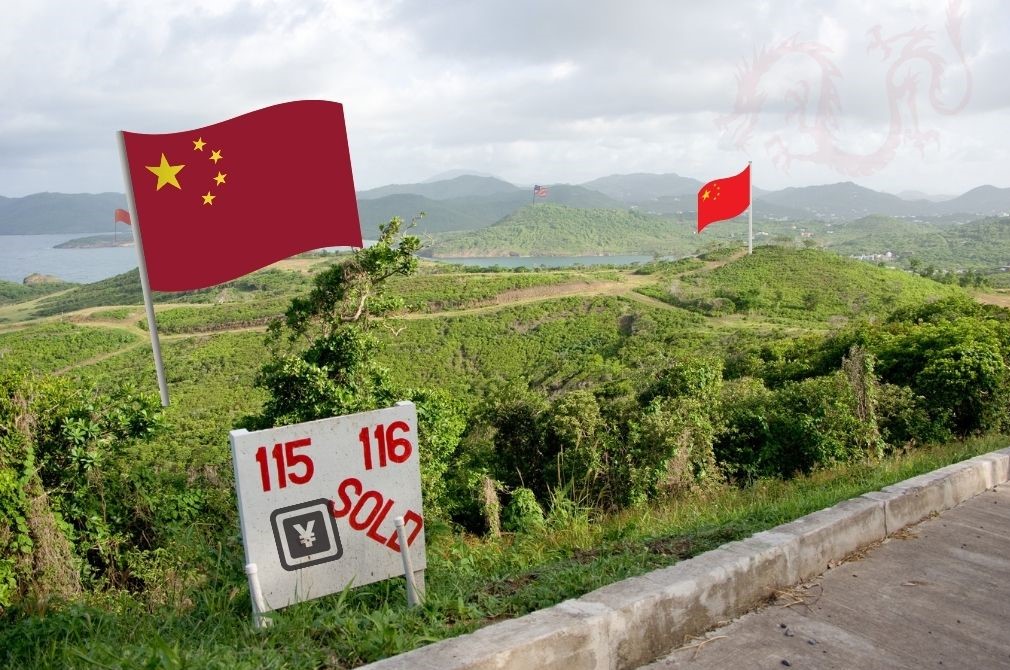It’s one thing to have wealthy Chinese individuals or even private companies from China own land in the U.S. Even China returns the favor to some extent, allowing Tesla to buy land in Shanghai’s Free Trade Zone for its Model 3 export factor (including to the U.S., by the way).
But Tesla is not owned by Uncle Sam so why is the U.S. allowing for CCP owned and operated entities to buy land here? Are we allowed to do anything remotely similar in China? (Of course, not.)
Congressman Chip Roy (R-TX-21) recently proposed a bill that will ban CCP members from purchasing land in the United States. The bill has not yet been introduced to the House, but CPA highlights the proposal here for the attention of members and to others on Capitol Hill who think it is imperative to keep a watchful eye on the actions of the CCP in the U.S.
The bill, called Securing America’s Land from Foreign Interference Act, specifically addresses individuals, however, and not entities. If this ever became part of a bill, like the new House China bills being debated and expected to see a vote in late July, it would bar official members of the Chinese government from owning property in the U.S. and its territories, including Puerto Rico.
“China has been buying up land and strategic infrastructure all over the world and in the United States,” Roy said in a press release dated June 11.
He says action is required to “thwart the CCP from ever seizing control of strategically valuable domestic assets in the U.S.”
Roy’s bill would have to be updated to include CCP owned entities as well.
In his home state of Texas, a Chinese-based energy company purchased more than 130,000 acres of land near Laughlin Air Force Base and is now attempting to build a wind farm that will almost certainly be used to import Goldwind wind turbines from Xinjiang. The land is owned by Shanghai billionaire Sun Guangxin. He is from Xinjiang originally and is a former military officer. Beyond his former bio, he doesn’t seem to have any official titles, or ties to the CCP, at least on paper.
“Allowing strategic purchases of land by CCP members presents clear and present dangers to U.S. national security,” Kyle Bass, a hedge fund manager and renown China hawk, told Epoch Times columnist Anders Corr on Saturday. https://www.theepochtimes.com/ban-ccp-land-ownership-in-the-usa-a-new-bill-from-texas_3855332.html
Bass notes, as we often do, that the China relationship is a one-way street. There is almost no reciprocity, and in this case in particular, land ownership is especially true.
“China doesn’t allow former U.S. military officers to acquire 200 square miles of land between an active Chinese military base and their border with Taiwan, so why should the U.S. allow such strategic purchases by Chinese nationals?” he said about Sun Guangxin’s roughly 130,000 acres of land in Texas, and numerous Texas cattle ranches.
Meanwhile, private companies are buying. There is no mention of them in the bill being tied to CCP entities, or being banned. CPA believes any focus on bans should be centered around protecting U.S. strategic infrastructure and national security interests overall.
An old Chinese property developer from Yantai, known as Shandong Xinchao, bought hundreds of acres of oil producing land in Texas through a subsidiary called Surge Energy. They are privately held and have been buying oil land in the state since 2015.
Private U.S. companies are only now allowed to buy land and own their Chinese venture partners outright. In fact, the push to allow for greater stakes by mostly financial firms in New York has been the key driver of the U.S. China relationship since George W. Bush started his Strategic Dialogues with Beijing, led by Hank Paulson, Bush’s Treasury Secretary and former CEO of Goldman Sachs.
In recent months, two major financial firms got their wish in mainland China.
Although it’s not land ownership, Morgan Stanley’s partner Shanghai Chinafortune Co agreed last month to sell its position to the New York investment firm. It now dreamily owns 85% of the funds business, with Chinafortune owning the rest.
Real estate giant Blackstone announced in November that they took a majority stake in China’s Greater Bay Area’s largest urban logistics park, with one of their real estate investment funds owning a 70% stake in the 1.2 million-square-meter logistics park located in Guangzhou, one of China’s export hubs. So here we have Blackstone investing long term in China’s prowess as the world’s e-commerce platform and shipper to the world. We think Washington would get pushback from American multinationals only now getting a chance to be majority stakeholders of assets in China, land excluded.
China’s not just buying up land in the U.S.
State owned enterprises are buying up land in Japan, around military bases.
And on the tiny Pacific Island nation of Kirabiti, China is using the West’s love affair with climate change as a reason to buy land there. They’ve even called it a “climate reserve”. Just wait until they try buying preservation land in California to protect it from wildfires.
Americans can buy apartments in Shanghai if they want to.
But they are limited to one asset and need to be going to school or working in China for at least one year prior to the purchase. Additional requirements apply in Beijing and Shanghai. Foreigners cannot buy land in Hong Kong and if they want to buy it in China, they have to buy it on a lease, for around 70 years, from the government.
Roy’s proposal is the beginning of a good idea, but it needs further work. How important is the security concern? And who should such a ban be extended to, and how? Roy has hit onto a real issue already covered by the Committee on Foreign Investment in the United States to some extent. CCP’s A-list and their state-owned entities should be locked out of American land ownership, commercial real estate and anything of strategic value, including energy.













